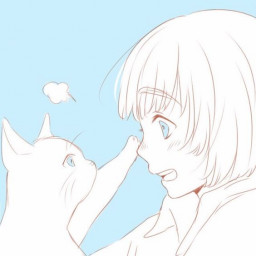Replace the group of words in italics by an infinitive or an infinitive construction.
It is important that he should understand this.
It is important/or him to understand this.
He was the first man who arrived. He was the first man to arrive.
1 The captain was the last man who left the ship.
2 He got to the top and was very disappointed when he found that someone else had
reached it first.
3 The committee have decided to send you to Paris. (You (go) to Par
omit The committee have decided to send.)
4 Would you be very kind and lend me your umbrella?
5 There are a lot of sheets that need mending.
6 I was astonished when I heard that he had left the country.
7 It is better that he should hear it from you.
8 I was rude to him, which was stupid. (It was stupid ...)
9 If he had another child with whom he could play, he would be happier
10 It is necessary that everyone should know the truth.
11 There was no place where we could sit.
12 He put his hand into his pocket and was astonished when he found that his wallet
wasn't there.
13 He rushed into the burning house, which was very brave of him.
(It was very brave . . .)
14 I can't go to the party; I have nothing that I can wear.
15 It is expected that he will broadcast a statement tonight. (He is expected...)
16 I want a kitchen where ( = in which) I can cook.
17 He reached the station exhausted and was very disappointed when he learnt that the train had just left.
18 Haven't you anything with which you could open it?
19 It seems that the crime was committed by a left-handed man.
(The crime seems . . . Use perfect infinitive passive.)
20 Is it likely that he will arrive before six? (Is he . . .)
21 I was on the point of leaving the house when the phone rang.
22 This is the plan: someone will meet you at the station . . .
(You . . . (be met) at the station)
23 She is anxious that they should have every possible advantage.
24 It is said that he was a brilliant scientist. (He is said . . .)
25 The strikers decided that the strike should continue.
26 Would you be very kind and translate this for me?
27 It is advisable that we should leave the house separately.
28 You signed the document without reading it, which was very stupid. (It was stupid...)
29 It is said that she has a frightful temper. (She . . .)
30 He was the first man who swam the Channel.
31 They believe that he is honest. (He . . .)
32 It appears that he was killed with a blunt instrument.
(He appears . . . Use passive infinitive.)
33 He was the only one who realized the danger.
34 It is said that the earth was originally part of the sun. (The earth . . .)
35 He took out his spare wheel and was very disappointed when he discovered that that tyre was also punctured.
36 It is said that the murderer is hiding in the woods near your house.
các bạn giúp mình với nhé sáng mai mình học rồi


















